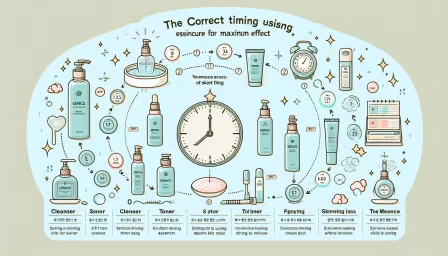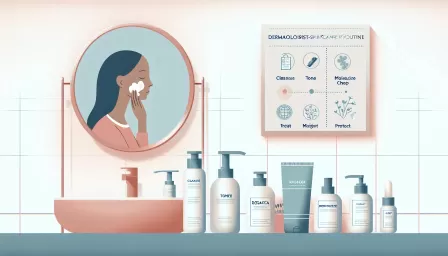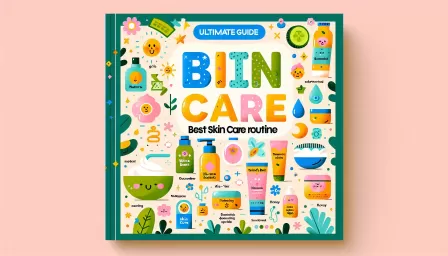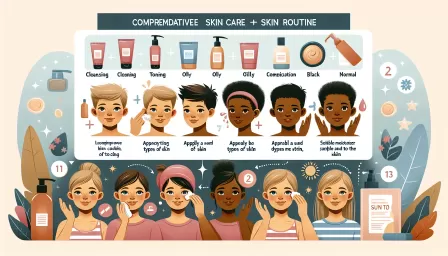The Ultimate Skin Care Routine for Acne: Clear Your Skin Fast
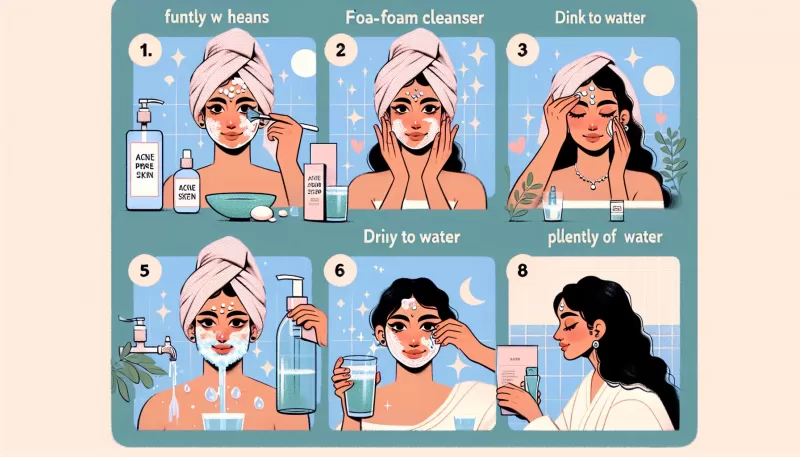
Discover the ultimate skin care routine for acne. Learn how to clear your skin fast with these expert tips and effective treatment strategies.
Acne can be a persistent and annoying skin condition that affects people of all ages. However, with the right skin care routine for acne, you can achieve clearer, healthier skin. This guide explores effective strategies and products to help you manage and reduce acne discomfort quickly.
Understanding Acne: Causes and Types
Before diving into the specifics of a skin care routine for acne, it's important to understand what causes acne and the different types of acne that exist.
Causes of Acne
Acne occurs when hair follicles become clogged with oil and dead skin cells. Here are the primary factors that contribute to the development of acne:
- Excessive oil (sebum) production: This occurs when sebaceous glands produce too much oil.
- Hair follicles clogged by oil and dead skin cells: This blockage provides a breeding ground for bacteria.
- Bacteria: Propionibacterium acnes bacteria can trigger inflammation, leading to acne.
- Hormonal changes: Androgens can increase the size of sebaceous glands, resulting in more oil production.
Types of Acne
Acne manifests in different forms, each requiring targeted treatment:
- Whiteheads: Closed clogged pores.
- Blackheads: Open clogged pores that turn black due to oxidation.
- Papules: Small red, tender bumps.
- Pustules: Pimples with pus at their tips.
- Nodules: Large, painful lumps beneath the skin.
- Cysts: Painful, pus-filled lumps beneath the skin's surface.
Essential Steps for a Skin Care Routine for Acne
An effective skin care routine for acne involves several key steps to cleanse, treat, and protect your skin. Here’s a comprehensive routine to help you fight acne.
Step 1: Cleansing
Proper cleansing is the foundation of any acne treatment regimen. Use a gentle, non-comedogenic cleanser to remove dirt, oil, and makeup. Cleansing twice daily—once in the morning and once before bed—helps to maintain clear skin.
Step 2: Exfoliation
Exfoliation helps remove dead skin cells that can clog pores and cause breakouts. Use a chemical exfoliant containing salicylic acid or glycolic acid 2-3 times a week. Avoid physical exfoliants that may irritate the skin.
Step 3: Treatment Products
Incorporate targeted acne treatments into your routine:
- Benzoyl Peroxide: An effective treatment to kill acne-causing bacteria and reduce inflammation.
- Retinoids: These Vitamin A derivatives increase cell turnover and prevent clogged pores.
- Salicylic Acid: A beta hydroxy acid (BHA) that penetrates pores to clear blockages and reduce oil production.
Step 4: Moisturizing
Moisturizing is crucial, even for acne-prone skin. Use a lightweight, non-comedogenic moisturizer to hydrate your skin without clogging pores. Look for products containing hyaluronic acid or glycerin for effective hydration.
Step 5: Sun Protection
Sun exposure can exacerbate acne and lead to hyperpigmentation. Apply a broad-spectrum sunscreen with at least SPF 30 daily to protect your skin from UV damage. Choose a sunscreen labeled as non-comedogenic to avoid pore clogging.
Advanced Acne Treatments
Sometimes, over-the-counter products aren't enough, and professional treatments are necessary to manage severe acne. Below are some advanced treatment options:
Topical Prescription Medications
Dermatologists may prescribe topical medications like tretinoin, adapalene, or clindamycin to treat stubborn acne. These treatments are generally stronger and more effective than over-the-counter options.
Oral Medications
For more severe cases, oral medications such as antibiotics, hormonal treatments, or isotretinoin may be prescribed. These treatments work systemically to reduce inflammation and prevent acne outbreaks.
Professional Procedures
Various in-office procedures can dramatically improve acne and reduce scarring:
- Chemical Peels: These treatments use strong acids to exfoliate the skin and clear blocked pores.
- Microdermabrasion: A procedure that exfoliates the top layer of skin, encouraging new skin growth.
- Laser and Light Therapies: These treatments target bacteria and reduce inflammation through controlled light emissions.
Lifestyle and Dietary Tips for Clearer Skin
Alongside a solid skin care routine for acne, making certain lifestyle and dietary adjustments can help manage and prevent acne breakouts.
Healthy Diet
Your diet significantly impacts your skin health. Incorporate these dietary tips for clearer skin:
- Eat a balanced diet: Consuming a variety of fruits, vegetables, lean proteins, and whole grains provides essential nutrients for skin repair and renewal.
- Avoid high glycemic index foods: Foods like sugars and refined carbs can spike insulin levels, potentially exacerbating acne.
- Stay hydrated: Drink plenty of water to keep your skin hydrated and flush out toxins.
Stress Management
Chronic stress can trigger hormonal changes that may worsen acne. Implement stress-relief techniques such as yoga, meditation, and regular exercise to manage stress levels.
Get Adequate Sleep
Quality sleep is essential for skin regeneration and repair. Aim for 7-9 hours of sleep per night to help maintain healthy skin.
Conclusion
Developing an effective skin care routine for acne involves understanding the causes of acne, following essential skin care steps, considering advanced treatments, and adopting a healthy lifestyle. With consistency and the right approach, you can achieve clearer, healthier skin.
If over-the-counter products and adjustments do not yield results, consult a dermatologist to explore advanced options. Remember, everyone's skin is unique, so a personalized approach may be necessary to achieve the best results.






